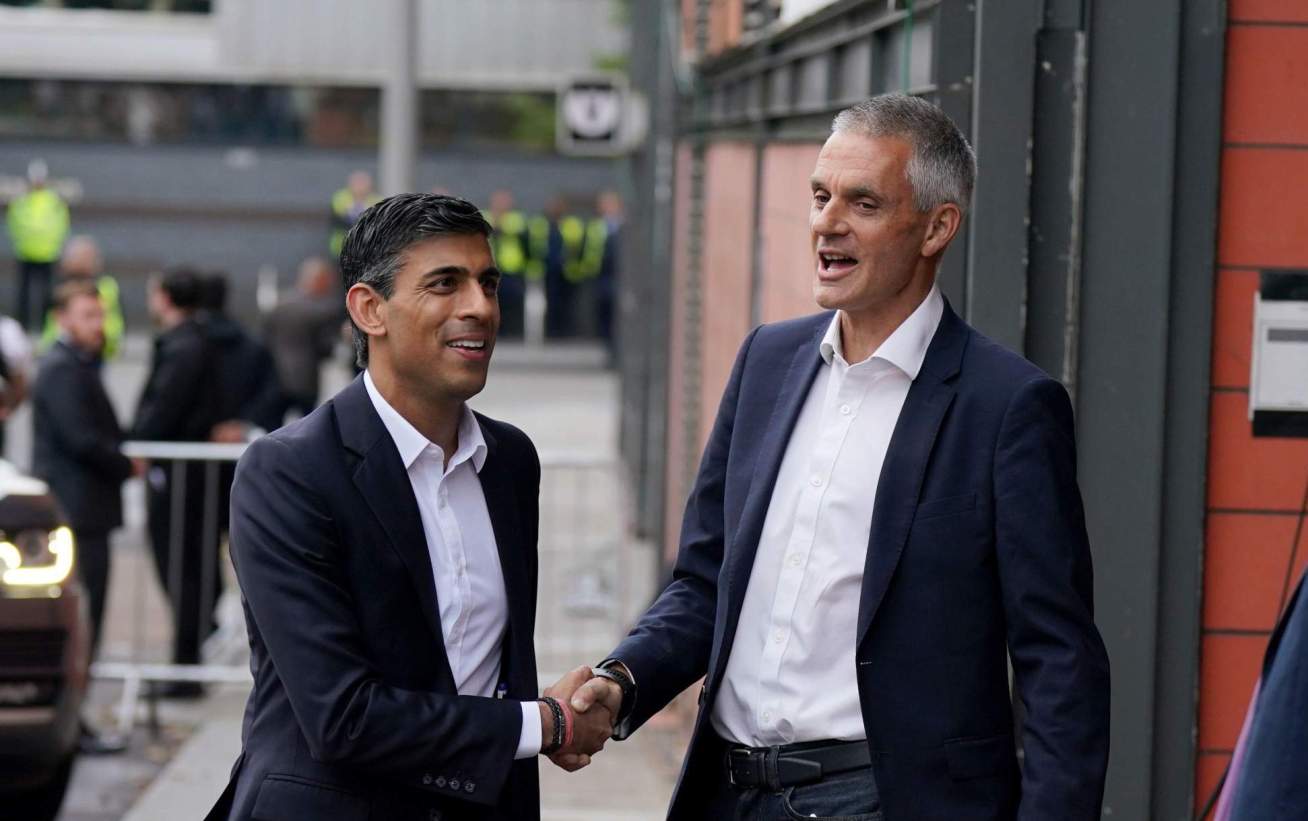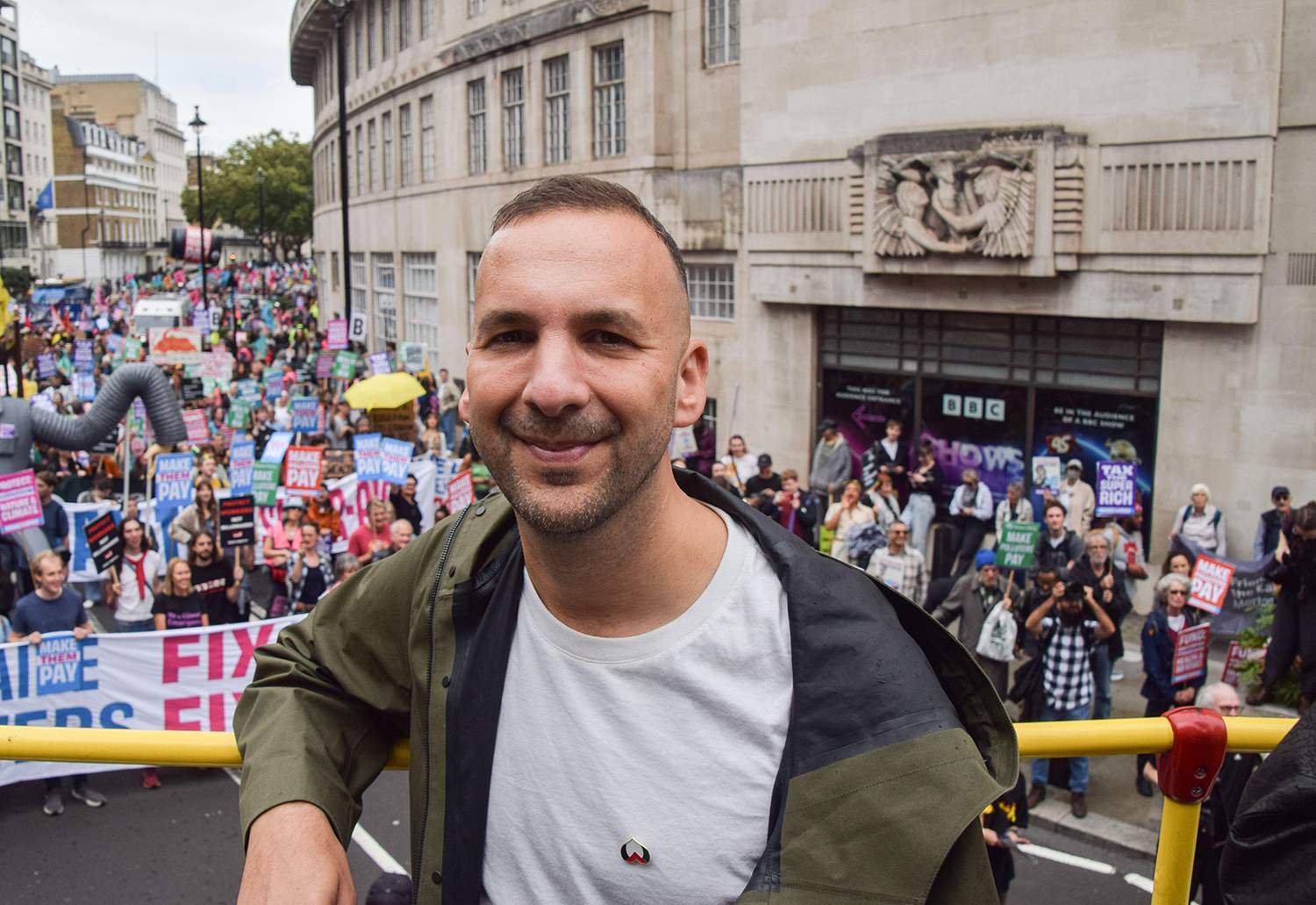
Read our Monthly Magazine
And support our mission to provide fearless stories about and outside the media system
When Boris Johnson was Prime Minister one of his senior advisers confided to me that one of the only things in politics his boss actually cared about was “killing off the BBC”.
Five years on, and it is a campaign that appears to be finally coming to fruition.
Just last week, as the corporation came under sustained attack by the combined forces of Donald Trump’s White House and the Conservative-supporting press in the UK, over its clumsy editing of a speech by the President, the former Prime Minister appeared to smell blood.
Taking to X, Johnson tweeted that “Until BBC boss Tim Davie either comes clean on how Panorama doctored Trump’s speech – or resigns – I won’t be paying my licence fee.”
He wouldn’t have long to wait.
Within days of Johnson’s ultimatum, the BBC’s Director General Tim Davie and its CEO of News Deborah Turness had announced their resignations.
For some insiders at the BBC, their departure was a direct result of the “coup” set in trail by Johnson in Government.
“It was a coup, and worse than that, it was an inside job,” former Sun Editor David Yelland told Radio 4’s Today Programme, on Monday, reflecting the view of many inside the corporation.
“There were people inside the BBC, very close to the board … on the board, who have systematically undermined Tim Davie and his senior team over a period of [time] and this has been going on for a long time. What happened yesterday didn’t just happen in isolation” he told the programme.
One of the key figures in this internal “coup” was the former Conservative Communications Director and GB News executive, Robbie Gibb, who was appointed by Johnson to the BBC board in 2021, shortly after describing the corporation as having been “culturally captured by… woke-dominated group think”.
Although not formally in an executive role, journalists at the corporation report that Gibb became hugely involved in scrutinising those he perceived as being “biased” against the Conservative party and Brexit, leading to what some insiders described as a “culture of fear” within the corporation.
“There was a period which coincided with the aftermath of the 2019 General Election and the Covid pandemic when BBC bosses were absolutely terrified of Downing Street,” one former BBC political journalist told Byline Times last year.
“It got into the heads of a lot of bosses up to and including the Director-General himself – that we were all basically ‘metropolitan liberals’ who weren’t representative of anyone and that we needed to be bloody careful because, if we stepped out of line, then we knew what was going to happen.”
Other figures shoehorned into the corporation during this period included its former chair Richard Sharp, who was later forced to resign, after being exposed for facilitating a large secret loan for Johnson, while also funding third party lobby groups set up to undermine the BBC.
Another key figure in this story is the public relations executive Michael Prescott, who was reportedly appointed as an external advisor to the BBC following lobbying by Gibb, before penning the memo accusing the corporation of being anti-Trump, pro-Hamas and biased in favour of pro-Trans voices, which was then leaked to the Telegraph and found its ways into Trump’s feed last week.
A Policy of Appeasement

Of course at any point throughout this period, the BBC could have chosen to stand up against those forces trying to undermine them both from within and without.
Instead, under Davie, the corporation has become increasingly timid, second guessing every right-wing attack against them and trying increasingly desperately to appease those voices accusing them of left-wing bias.
This trend has continued, even after the Conservatives left office.
Faced with rising support for Nigel Farage’s Reform UK, the BBC again sought to appease its critics.
As Byline Times revealed earlier this year, at a meeting of the BBC’s Editorial Guidelines and Standards Committee in March, Deborah Turness gave a presentation to other BBC executives in which she discussed plans to alter the corporation’s “story selection” and “other types of output, such as drama” in order to win the “trust” of Reform voters.
Asked by this paper whether the committee, which also included Gibb, had ever conducted a similar process to win the trust of supporters of other parties, like the Greens, a spokesman declined to answer.
However, it is unlikely that any such process ever occurred. As one former BBC journalist put it to me: “I don’t remember anyone [in the BBC management] ever saying to us ‘oh I just don’t think we’re properly reflecting the Green Party view or the liberal-left view on this story’.”
“It was always just slanted in one direction – which was basically the nativist, authoritarian, Conservative direction. The pressure was always from the Conservative direction and never from the Labour direction.”
This imbalance means that although regularly attacked by its critics on both the left and the right, it is only the latter voices that ever appear to hold sway at the top of the corporation.
Inside the Lobby
This imbalance is as much social and cultural as it is political.
Although employing many thousands of people across multiple countries, the BBC’s political coverage is based out of a small set of offices in Westminster, as well as within the narrow corridors of the “lobby” of political journalists in the House of Commons Press Gallery.
This latter organisation, of which this paper is a member, is still heavily dominated by a small number of Conservative-supporting newspapers, whose front pages still feature prominently in the BBC’s news and political coverage. Despite holding huge news-gathering resources of its own, the BBC allows its focus to be largely led by these papers, even when their agenda involves its attempted destruction.
This combination of managerial timidity, overcorrection for perceived internal liberal bias, and a continued reliance on the news agenda of a largely right-leaning British press, has led the BBC to haemorrhage support among many of its natural supporters.
It remains unclear what will happen next. Davie’s replacement is likely to be heavily scrutinised by the BBC’s enemies for holding even the mildest of liberal or left-wing opinion. Meanwhile Keir Starmer’s Government has also shown little appetite so far to stand up to these same forces on the right seeking to undermine and destroy the corporation.
Yet with Davie gone there is a real opportunity for his successor to restore genuine editorial independence at the BBC. For all its faults, the corporation remains one of the world’s most respected broadcasters, with a long history of superlative documentaries, comedies, dramas, and investigations. With a little bravery and led by a new Director General, the BBC could still serve as a vital check against the kinds of political interference in our media currently being pursued on both sides of the Atlantic.
The alternative is that the BBC continues down its recent path of seeking to appease and co-opt the very forces whose political and commercial interests demand its destruction.
The events of the past week should demonstrate beyond doubt where such a strategy would ultimately lead.
ENJOYING THIS ARTICLE? HELP US TO PRODUCE MORE
Receive the monthly Byline Times newspaper and help to support fearless, independent journalism that breaks stories, shapes the agenda and holds power to account.
We’re not funded by a billionaire oligarch or an offshore hedge-fund. We rely on our readers to fund our journalism. If you like what we do, please subscribe.


